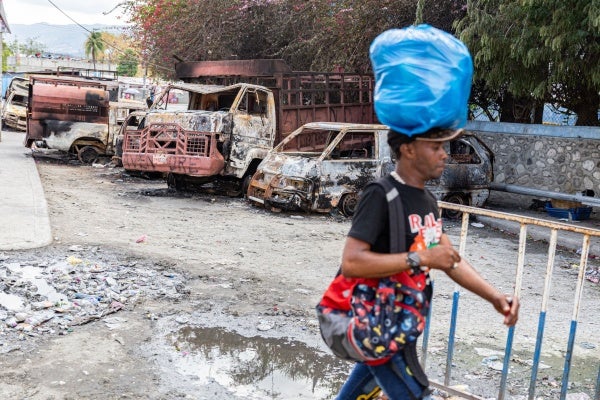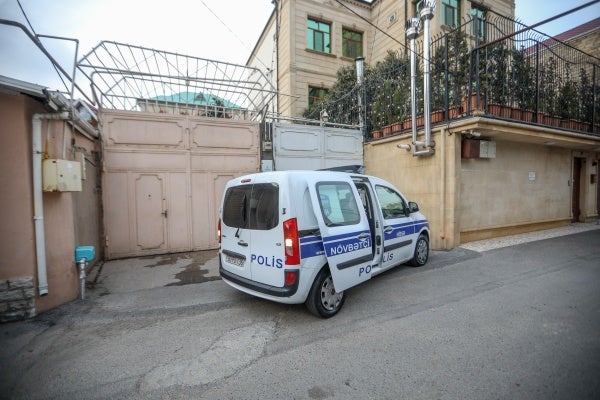Lea la versión en español
“The country is falling apart. There is no state authority left. The authorities now are the criminals.”
The words of a senior police official sum up the situation in Haiti today.
What this means for ordinary Haitians, however, was perhaps better expressed by a 23-year-old mechanic in the capital, Port-au-Prince: “There is no state, the police are scared, and they have no way to defend us from the gangs that shoot, kill, kidnap, rape women, and take away everything from us on a daily basis.”
Haiti is on the brink of a total collapse. In fact, it’s probably already past that point, as violent criminal groups seek to overthrow the government.
The groups’ actions have practically shut down the economy and the delivery of humanitarian aid. Their assaults on two prisons have set loose almost 4,700 prisoners. Nearly all transportation, including the country’s main port and international airport, is at a standstill.
The prime minister, Ariel Henry, failed to organize elections and step down by February 7 as promised, leading to protests and deeper chaos. Now, he’s outside the country, unable to return since he traveled to Kenya to finalize arrangements for the Kenyan-led international security support mission, which has been beset by legal, funding, and operational problems.
Right now, the most powerful person in the country may be Jimmy Chérizier aka “Barbecue,” the leader of Haiti’s main criminal coalition, known as G9. He’s working with a rival criminal gang to remove Henry from power and confront the international support mission when it arrives.
Criminal gangs already control much of the country. They have killed more than 1,100 people and injured nearly 700 others in 2024 alone. Some 13,000 people have been killed, injured, and kidnapped by criminal groups since January 2022. Thousands of women and children have been victims of sexual violence.
More than 362,000 people have been internally displaced. Food insecurity in Haiti is among the worst in the world. Many children are out of school, and often fall prey to recruitment by criminal gangs.
The people of Haiti desperately need international support, and the Kenyan-led mission will certainly be entering an extremely hostile environment. Pledges of support have come from the US, Canada, and France. Benin, Chad, Bangladesh, Barbados, and The Bahamas have committed to deploying forces alongside Kenyan police officers.
The history of international interventions in Haiti is littered with serious errors, even horrors. Governments need to avoid past failures, which means putting the protection of human rights at the core of the mission.
Haitian civil society could help show the way. Independent charities and activist groups have developed proposals to restore the rule of law, security, and access to basic necessities. International actors should work with these folks on the ground who understand the situation best.
Only by working together locally and internationally is there a chance to help bring about true democratic governance as the ultimate basis of long-term security in Haiti.






